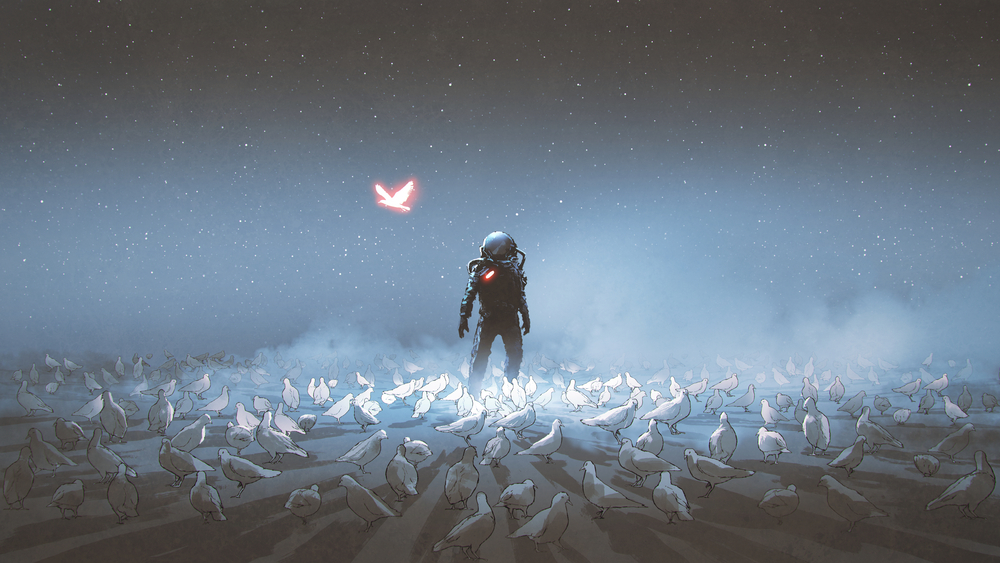
My motto is: if it moves, privatize it; if it doesn’t move, privatize it. Since everything either moves or does not move, the logical implication is, privatize everything.
Why this radical call for privatization? Simple. There are only three ways to deal with property: government ownership, non-ownership, and private ownership. The problem with the first is exemplified by the failure of the USSR, East Germany, and North Korea. Without market prices, which can only emanate on the basis of private property, central planning is flying blind. It cannot grasp scarcities and alternative costs. It has no rational way of determining whether railroad ties should be made of steel or platinum, for example, or whether the new road should go through or around the mountain.
Non-ownership, in turn, is subject to the tragedy of the commons. If no one owns it, the resource is all too quickly dissipated. Perhaps the most dramatic illustration of this debilitation is a comparison of the fate of the cow and the buffalo. Biologists will of course cavil at this, but to the average person (including me) they are all but the same animal. They are both big, smelly, dirty, hairy. If you run into either of them, in the absence of a tank, you’ll come off second best. Yet, the privately owned cow never came within a million miles of extinction; in contrast, this was almost the fate of the buffalo, until its privatization was legally allowed.

Migratory birds are no exception to this general rule in favor of privatization. The challenge arises from the fact that they are a fugitive resource. The buffalo are too, of course, but the benefits of privatizing them clearly and radically outweighs the costs of so doing. It is entirely possible, at least given the present level of technology, that this will prove to also be the case of migratory birds. But it might not be. Would this undermine my motto? Not at all. After all, with present technology, the costs of privatizing land on the Moon or Mars- to say nothing of the other heavenly bodies in our solar system- are obviously vastly greater than any benefits we might possibly derive thereby. If not today, perhaps one day, technology will enable us to economically privatize both birds and planets.
What about right now? In one way we are far from being prepared. The human race is still plagued by dishonesty. There is cattle rustling, and this would undoubtedly afflict migratory bird ownership too, when and if this program could get off the ground, so to speak. However, it must be conceded, it would be far easier to engage in criminal behavior with regard to our feathered friends than our bovines. That is, they would be far easier to steal from their rightful owners.
Let us assume complete honesty and see where that takes us. If we do so, we can borrow a leaf from the possible ownership of whales, while they are still at sea. Shoot an electronic device into them which would warn all subsequent homesteaders that this particular one is now off limits. Such a device would not negatively impact the life, and hence the economic value, of that mammalian sea creature. But boids (as we say in Brooklyn) might, unhappily for their survival, be an entirely different matter. They are far more delicate. Perhaps, instead, a teeny, tiny, plastic band could be wrapped around their legs to indicate ownership.
We might also consider private butterfly ownership. These species have been captured and placed inside large tents which include all the plants necessary for their prosperous existence. These amenities serve also as tourist attractions. True, birds cover greater distances than butterflies, and thus require far larger tents, but if there is a will, there is a way. That is to say, if a profit can be earned by housing birds in such a manner, it will presumably occur under the free enterprise system. At the very least, some members of these species may be saved in such a manner, even if many others succumb to the tragedy of the commons.
Walter E. Block is Harold E. Wirth Eminent Scholar Endowed Chair and Professor of Economics at Loyola University New Orleans and is co-author of An Austro-Libertarian Critique of Public Choice (with Thomas DiLorenzo).

READER COMMENTS
Edward Green
Oct 3 2022 at 12:07am
It’s hard to tell if you are being sarcastic or light-hearted: an anti-capitalist can read this as sarcasm and a free market economist as truth hidden in humor, but in any case it’s a great essay. Perhaps the extinction of man is a solution? We act like such a thing would be the end of world, like we are all that, but then butterflies, whales and birds could go one migrating in the untrammeled commons! They say bears have a sense of aesthetics, so at least they could enjoy it.
Jon Murphy
Oct 3 2022 at 8:34am
As a pure empirical matter, this statement is incorrect. The work of Elinor Ostrom (and her followers) have shown there are many ways of governing commons that fall between privatization and state ownership. As economists, we must think on the margins as that is how people act, so trying to shove things into corner solutions (especially when empirically false) is a mistake.
That said, I think the larger point is correct. The Law of Demand is a powerful force that many (including economists!) often misunderstand. The longer a price remains relatively high, the more elastic the demand curve becomes. The same is true of costs. While the current costs of privatizing migratory birds may be high, that doesn’t mean it will be in the future. And by assigning property rights, it creates incentives for people to figure out how to lower those costs. Consequently, any government intervention would necessarily have a half life, as Fred Foldvary and Dan Klein discuss in their article “The Half-life of Policy Rationale”
Bill
Oct 3 2022 at 11:37am
Valuable contribution, Jon.
David Seltzer
Oct 4 2022 at 6:49pm
“The longer a price remains relatively high, the more elastic the demand curve becomes.” Jon, I’m not sure I understand. It seems to me that the demand curve becomes more elastic because the next, marginal, competing producer would force lower prices in equilibrium, increasing quantity (q) demanded. Percentage change in quantity/ percentage change in price.
Jon Murphy
Oct 5 2022 at 8:15am
The longer a price stays relatively high, the more people will search out or develop substitutes as well. The more substitutes that become available, the more elastic the demand curve becomes.
David Seltzer
Oct 5 2022 at 11:07am
Murph, thanks for pointing out substitutes. I should have recalled the lesson that covered cross elasticities. People buy more chicken and less beef as the price of steak increases. If consumers prefer both equally, they would shift their consumption towards chicken as chicken is cheaper.
Atanu Dey
Oct 3 2022 at 10:23am
Prof Block: Thank you for the lovely article. I loved the humor.
Your “boid” reminds me of a joke. Little school boy (in Brooklyn, I suppose) is distracted by a bird outside the classroom window. He says, “Look, there’s a boid.” Teacher says, “That’s a bird.” He says, “Sure looks like a boid to me.”
David Seltzer
Oct 5 2022 at 11:11am
Atanu, have you heard this one?
Spring has sprung and the grass has riz
I wonder where the boidies iz
I hoid the boid is on the wing
But that’s absoid
As the wing is on the boid.
Comments are closed.